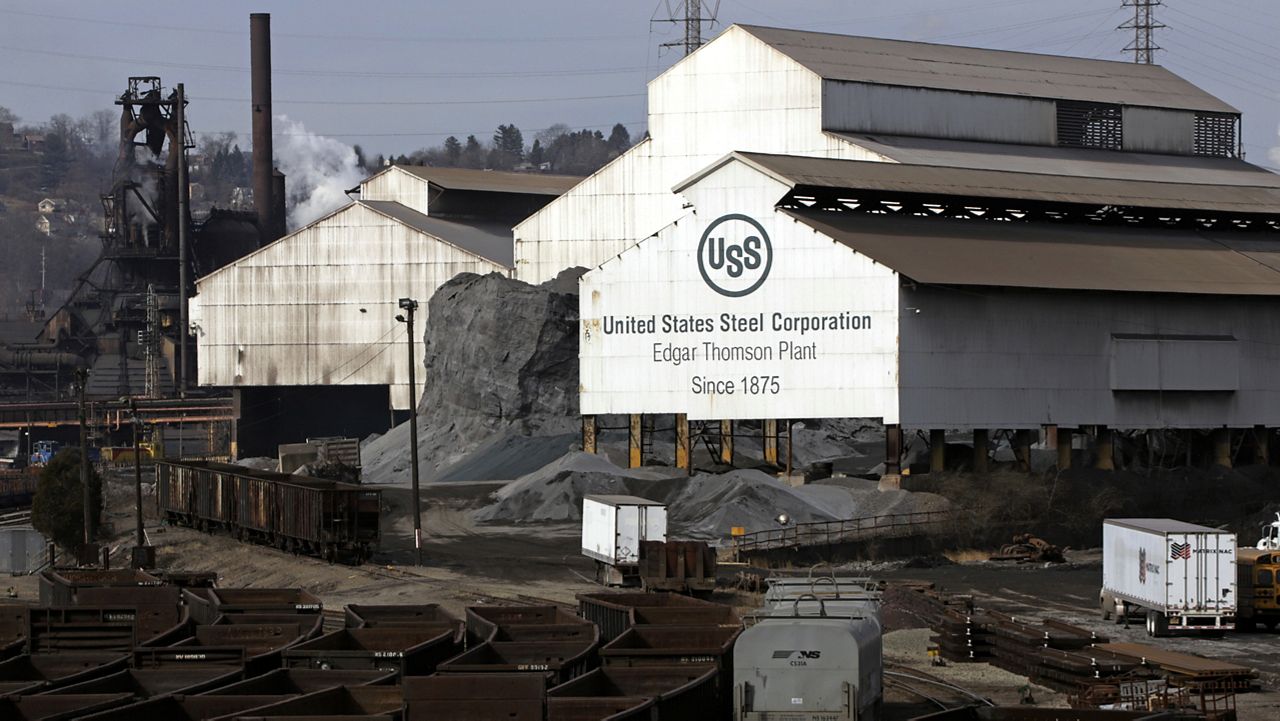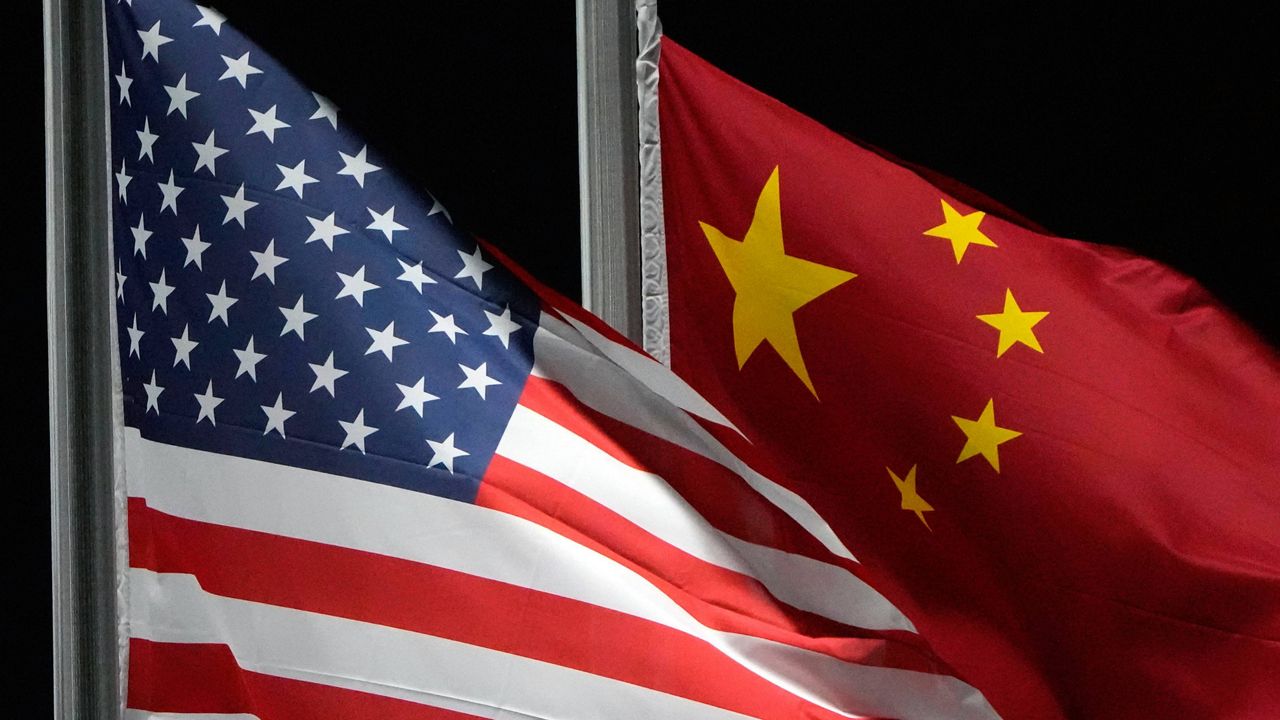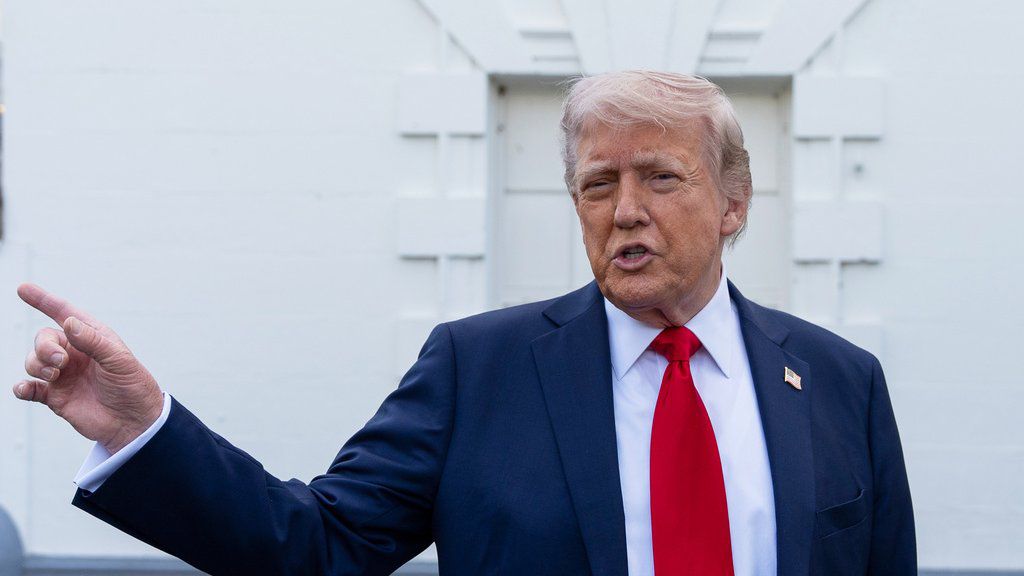Three U.S. senators are urging Treasury Secretary Janet Yellen to launch a review of U.S. Steel’s sale to Tokyo-based Nippon Steel.
Meanwhile, several other lawmakers are also voicing concern about the $14.9 billion deal announced Monday.
What You Need To Know
- Sens. J.D. Vance of Ohio, Josh Hawley of Missouri and Marco Rubio of Florida — all Republicans — sent a letter to Treasury Secretary Janet Yellen on Tuesday urging her to launch a review of U.S. Steel’s sale to Tokyo-based Nippon Steel
- The senators argued the sale would compromise national security and be deterimental to domestic manufacturing
- The Treasury Department declined to comment on the letter
- Meanwhile, several other lawmakers are also voicing concern about the $14.9 billion deal announced Monday
Sens. J.D. Vance of Ohio, Josh Hawley of Missouri and Marco Rubio of Florida — all Republicans — sent a letter to Yellen on Tuesday saying the sale “has dire implications for the industrial base of the United States.”
Yellen is also the chair of of the Committee on Foreign Investment in the United States, an interagency panel that scrutinizes certain transactions involving foreign investment to determine whether they affect national security.
The senators argued in their letter that domestic steel production is vital to U.S. national security and that U.S. Steel’s board prioritized the 122-year-old company’s stockholders over the country’s defenses by agreeing to sell to Nippon Steel. U.S. Steel received competitive bids from American companies, they said.
Vance, Hawley and Rubio wrote that the sale would be “a turning point for an icon of American industry” and argued that allowing foreign companies to buy American companies would circumvent trade policies aimed at protecting domestic manufacturing. They also said Nippon Steel’s “allegiances clearly lie with a foreign state and whose record in the United States is deeply flawed.”
In a statement Monday, Vance vowed to “do everything in my power to protect the future of our nation’s security, industry, and workers.”
The Treasury Department declined to comment on the letter.
Members of Congress from both sides of the aisle have rebuked the deal, including both of Pennsylvania’s Democratic senators. U.S. Steel’s headquarters are in Pittsburgh.
“It’s absolutely outrageous that they have sold themselves to a foreign nation and a company. Can’t do that,” Sen. John Fetterman, D-Pa., said in a video posted on social media. “Steel is always about security as well, too. And I am committed to doing anything I can do for using my platform and my position in order to block this.”
Sen. Bob Casey, D-Pa., said in a statement U.S. Steel should remain under American ownership, adding the sale appears to be “a bad deal for Pennsylvania.”
“I’m concerned about what this means for the Steelworkers and the good union jobs that have supported Pennsylvania families for generations, for the long-term investment in Commonwealth, and for American industrial leadership,” he said.
Sen. Sherrod Brown, D-Ohio, wrote on X, formerly Twitter: “A foreign company shouldn’t be able to swoop in, ignore the voices of union workers, and buy a major steel manufacturer behind closed doors.”
Rep. Chris Deluzio, D-Pa., said the deal “sounds an awful lot like a betrayal: of my community, of Steelworker jobs, and of American industrial leadership.”
Rep. Max Miller, R-Ohio, called on the Biden administration to block the sale.
“Steel is crucial for American national and economic security,” he wrote on X. “We shouldn’t sell out our future or our workers to foreign corporations.”
The United Steelworkers trade union has blasted the deal, with its president, David McCall, saying “it demonstrates the same greedy, shortsighted attitude that has guided U.S. Steel for far too long.”
Under the deal, U.S. Steel would keep its name and remain headquartered in Pittsburgh. But McCall said, “USW does not believe that Nippon understands the full breadth of the obligations of all our agreements, and we do not know whether it has the capacity to live up to our existing contract.”
Neither U.S. Steel nor Nippon Steel immediately responded to emails from Spectrum News requesting comment Tuesday.
Ryan Chatelain - Digital Media Producer
Ryan Chatelain is a national news digital content producer for Spectrum News and is based in New York City. He has previously covered both news and sports for WFAN Sports Radio, CBS New York, Newsday, amNewYork and The Courier in his home state of Louisiana.








